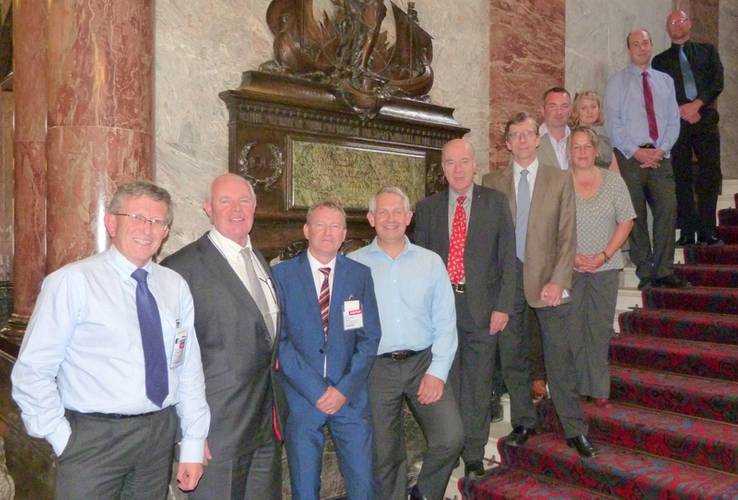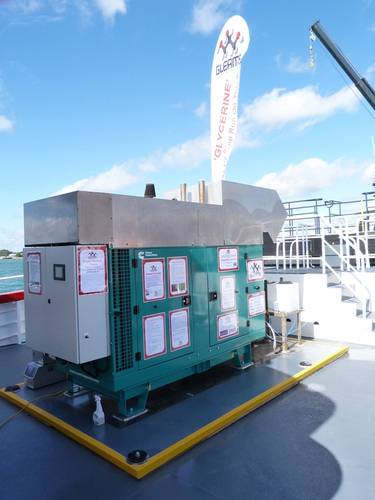Making the Case for Glycerine as Clean Marine Fuel
GLEAMS Project concludes that Glycerine is a viable, clean, alternative marine fuel
After a year of intense activity, Marine South East’s GLEAMS (Glycerine Fuel for Marine Sustainability) project has concluded that Glycerine is a viable, exceptionally clean alternative marine fuel.
Over the course of the initiative the project consortium gathered evidence and conducted analysis to prove that glycerine is a technically viable, very low emissions alternative fuel for the marine market. The factors, both positive and negative, influencing the adoption of the technology have been teased out and assessed and found favorable in significant defined markets.
The GLEAMS project consortium believe that there are many potential ‘niche’ markets for the adoption of glycerine fuel that would particularly benefit from its non-toxic, clean burning and safe characteristics. The project partners are currently exploring early potential adopters for the technology including wind farm support vessels, research and education vessels, military specialist craft and superyachts. In addition a potential market for ‘cold-ironing’ (shore power) has been recommended by the project as a special case where subsidies could be available in the UK.
The project sought to publicly demonstrate that glycerine could be used as a fuel in compression ignition engines by displaying the glycerine powered GLEAMS emissions test engine for three days at Seawork International 2014.
Glycerine is currently produced as a by-product of the bio-diesel industry and is in surplus supply. However, the available quantities are insufficient to power the world’s deep-sea shipping fleets but could support a range of smaller vessel types and shore applications. There is potential for a massive increase in glycerine supply from other organic renewable means such as salt-stressed algae. The commercial prospects for this are not yet clearly established but promising research continues. GLEAMS has been working the University of Greenwich, leaders in the field of algal glycerine production.
The GLEAMS project has been particularly successful in attracting global interest from vessel operators, engine manufacturers and bunker providers around the world as well as people keen to learn about this sulphur-free alternative fuel. 127 approved specialists have joined the online GLEAMS Interest Group over the course of the project and this user group will be maintained and kept informed of future developments and spin-off projects.

















